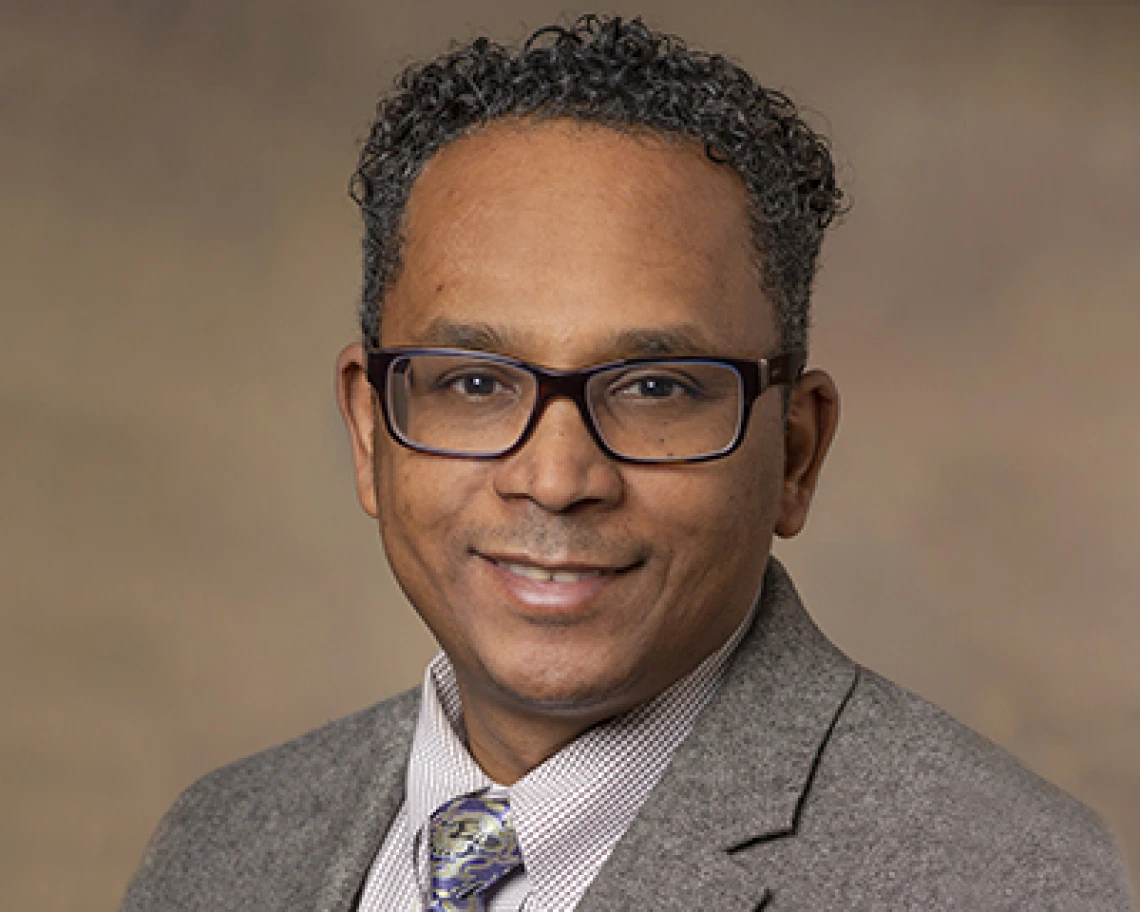UArizona Cancer Center Appoints Dr. Babiker to Leadership Position

TUCSON, Ariz. – Hani M. Babiker, MD, renowned for his expertise in new drug development and the treatment of gastrointestinal cancers, has been appointed assistant director of early-phase therapeutics and director of phase I clinical trials at the University of Arizona Cancer Center.
“Dr. Babiker is uniquely qualified to think broadly about our early-phase therapeutics portfolio across our department, not just the phase I team but all of the disease-oriented teams,” said Julie E. Bauman, MD, center deputy director and chief of the Division of Hematology and Oncology in the Department of Medicine at the UArizona College of Medicine – Tucson. “He will energize the early-phase therapeutics team by bringing new drugs to cancer care and demonstrating how they can improve patients’ outcomes.”
Dr. Babiker, an assistant professor of medicine, is also a faculty member in the Division of Hematology and Oncology.
 In this new leadership role, Dr. Babiker, who served as associate director of phase I clinical trials for the last four years, will oversee the UArizona Cancer Center’s portfolio of clinical trials that involve first-in-human novel cancer therapies. In addition, he will develop an integrated model, bridging the Cancer Center’s 14 disease-oriented teams to identify and implement novel drugs and treatments into early-phase clinical trials across multiple disciplines.
In this new leadership role, Dr. Babiker, who served as associate director of phase I clinical trials for the last four years, will oversee the UArizona Cancer Center’s portfolio of clinical trials that involve first-in-human novel cancer therapies. In addition, he will develop an integrated model, bridging the Cancer Center’s 14 disease-oriented teams to identify and implement novel drugs and treatments into early-phase clinical trials across multiple disciplines.
“Today we are seeing that drugs may be relevant in treating multiple cancers, not just a single type,” Dr. Bauman said. “The early-phase trials actually may involve a variety of cancers, like head and neck, lung, kidney, breast, gastrointenstinal malignancies and other solid tumors. Dr. Babiker’s position will be invaluable in bringing together the expertise of faculty representatives from each of our subspecialties to identify which cancers certain drugs effectively treat.”
Since Dr. Babiker joined the phase I program, the number of patients participating in phase I clinical trials has tripled, according to Dr. Bauman. She expects that number to increase going forward.
“We have significant support from leadership to make our phase I program more inclusive so our faculty members can particpate in early-phase clinical trials,” Dr. Babiker said. “I believe that will help our faculty members become more involved with drug candidates early and help streamline our trials better.”
He noted that many drugs are being developed and are receiving U.S. Food and Drug Administration approval early from phase I trials and expansion. “That means efficacious drugs can receive approval early before having to go through large phase III trials and ultimately be available to help patients in clinic sooner,” Dr. Babiker added. “So, it will be very exciting to have the Cancer Center become more involved in early-phase clinical trials at a national level specifically in this burgeoning era of drug development. When these drugs become available sooner, it helps patients live longer and healthier.”
Dr. Babiker is board-certified in medical oncology, hematology, internal medicine and geriatrics and gerontology. He completed a drug-development scholarship at the Virginia G. Piper Cancer Center/HonorHealth Research Institute in Scottsdale, where he was principal investigator and sub-investigator in many early clinical trials in solid tumors. Before joing the UArizona faculty, Dr Babiker was an instructor in medicine at the Mayo Clinic College of Medicine in Phoenix. He completed his hematology/medical oncology fellowship at the UArizona.
For more information on UArizona Cancer Center clinical trials, please visit: https://cancercenter.arizona.edu/patients/clinical-trials.
###
NOTE: Photo available upon request.
About the University of Arizona Cancer Center
The University of Arizona Cancer Center is the only National Cancer Institute-designated Comprehensive Cancer Center with headquarters in Arizona. The UArizona Cancer Center is supported by NCI Cancer Center Support Grant No. CA023074. With primary locations at the University of Arizona in Tucson and at Dignity Health St. Joseph’s Hospital and Medical Center in Phoenix, the Arizona Cancer Center has more than a dozen research and education offices throughout the state, with more than 300 physicians and scientists working together to prevent and cure cancer. For more information: cancercenter.arizona.edu (Follow us: YouTube).
About the University of Arizona Health Sciences
The University of Arizona Health Sciences is the statewide leader in biomedical research and health professions training. UArizona Health Sciences includes the Colleges of Medicine (Tucson and Phoenix), Nursing, Pharmacy, and the Mel and Enid Zuckerman College of Public Health, with main campus locations in Tucson and the Phoenix Biomedical Campus in downtown Phoenix. From these vantage points, Health Sciences reaches across the state of Arizona, the greater Southwest and around the world to provide next-generation education, research and outreach. A major economic engine, Health Sciences employs nearly 5,000 people, has approximately 4,000 students and 900 faculty members, and garners $200 million in research grants and contracts annually. For more information: uahs.arizona.edu (Follow us: Facebook | Twitter | YouTube | LinkedIn | Instagram).

